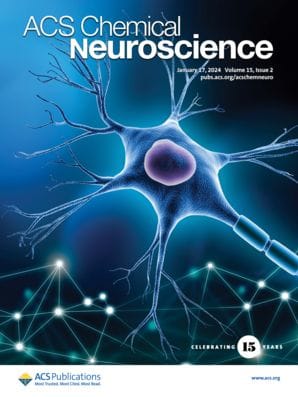ACS Publications is pleased to announce that Professor Jacob M. Hooker has been appointed Editor-in-Chief of ACS Chemical Neuroscience, replacing outgoing EIC Professor Craig W. Lindsley. In light of Professor Hooker’s contributions as an Associate Editor of ACS Chemical Neuroscience since 2013, and his combination of research accomplishments and knowledge of the journal and its […]

ACS Publications is pleased to announce that Professor Jacob M. Hooker has been appointed Editor-in-Chief of ACS Chemical Neuroscience, replacing outgoing EIC Professor Craig W. Lindsley. In light of Professor Hooker’s contributions as an Associate Editor of ACS Chemical Neuroscience since 2013, and his combination of research accomplishments and knowledge of the journal and its community, we’re thrilled that Professor Hooker will be guiding the journal into its next phase.

“I have had the privilege of working as an Associate Editor of ACS Chemical Neuroscience for seven years and have supported the journal as it moved from infancy to maturity. Our author and reader community is phenomenal and my role is to make sure that the journal not only serves that community but also enhances its impact on the study of the brain. Look for an expansion of our scope that matches our #IAmAChemicalNeuroscientist outreach efforts, especially to folks in clinical neuroscience and therapeutic evaluation. Please also share with us your thoughts on what makes the journal such a vital part of ACS Publications and what you would like to see as it continues to evolve. Finally, hang in there with COVID-19 and all the challenges it brings. We will be as flexible as possible always, but especially now, to help you communicate your science. “
Professor Hooker is currently Professor of Radiology at Harvard Medical School and a Phyllis and Jerome Lyle Rappaport MGH Research Scholar, and holds associate or affiliate appointments at the Broad Institute, Dana Farber Cancer Institute and the Massachusetts Institute of Technology (MIT). He brings the perspective of industry researchers as well as an active consultant and advisor to the pharmaceutical industry in neurotherapeutics; he currently serves as a scientific advisory board member for, among others, Psy Therapeutics, Delix Therapeutics, and Fuzionaire Diagnostics. In 2017, Prof. Hooker co-founded Eikonizo Therapeutics which leverages molecular imaging to de-risk drug discovery in the pursuit of disease-modifying therapeutics for neurodegenerative diseases.
Learn more about Professor Hooker in the below excerpt from the upcoming Neurochat:
What are the major challenges facing neuroscience today? How can these be tackled?
Technology advances for neuroscience have been extraordinary recently. Integration of data from single-cell sequencing, for example, with other approaches is in many cases leading to more questions than answers. No area of neuroscience should really be considered solved. I see a lot of encampment in methods. Rather than encamping as scientists in methods, technology, cell-type, or overarching dogma, we need to be better able to connect the dots between very different types of experiments in neuroscience.
What advice would you give to young scientists today?
Do what excites you and follow your instincts. While it is hard, sometimes impossible, to avoid doing things that others tell you are important, you have to try to be deliberate and do what you want. Sure, be opportunistic in the right moments but do not lose sight of things that give you simple joy and that make work seem like play. If you do things that excite you, you will stay motivated and have a wonderful career.
What is something about yourself that people would be surprised to know?
Though it’s been a long time since, I have completed three Ironman triathlons and many marathons. I used to punish myself by not training much and doing these things “off the couch”.
